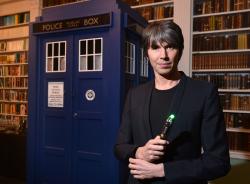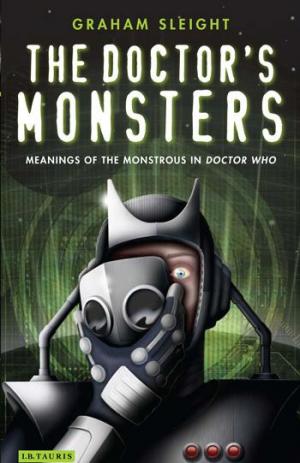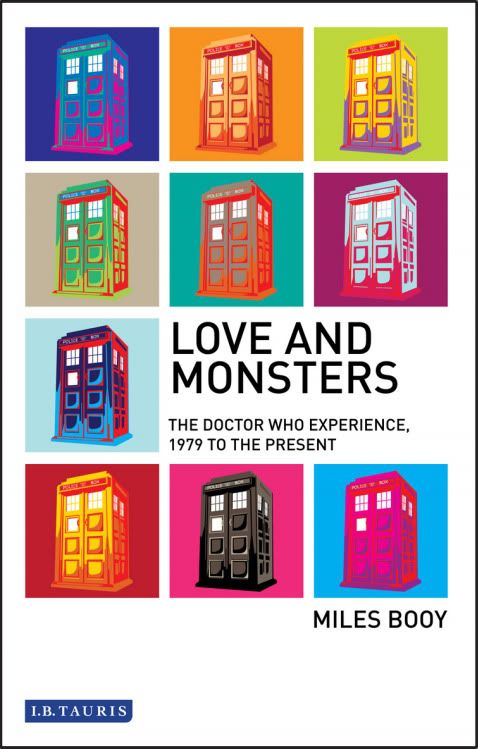Me, You and Doctor Who: A Culture Show Special
Friday, 22 November 2013 - Reviewed by Matt Hills

Me, You and Doctor Who: A Culture Show Special
Presented by Matthew Sweet
Directed by Jude Ho
Broadcast: BBC2, 22 November 2013
However, this is a modishly modular doc, rushing into new topics every few minutes, and breathlessly whizzing from Warriors’ Gate to Survival to the wilderness years, or the “theme park years” as Paul Cornell brilliantly dubs them. If you don’t like a particular era of Doctor Who, well, don’t worry because another one will be along in a minute. You’d almost think someone had shouted “when I say run, run!” at the writing and editing team, such is their commitment to racing down fifty years of pop-cultural corridors.
Another slight weakness is the occasional reliance on ‘name’ contributors and broadcasters. The show jumps from Hartnell to Hartnoll, taking soundings from psychotherapist Philippa Perry and columnist Caitlin Moran along the way. Moran proffers something about the impact of Russell T Davies's writing which sounds great, but is actually fairly simplistic and probably unverifiable. But never mind; it’s a punchy, attention-grabbing quote. Even Sweet’s unveiling of ‘Out of the Frying Pan’, backed up by Richard Martin’s agreement that the extract sounds like the glimmerings of what would become Doctor Who, can’t be solidly corroborated as more than the coincidental appearance of a pretty generic idea. But again, this makes for an attention-grabbing ‘reveal’. Fewer celebrity contributors, and a more measured pace, could have made this a more substantial contribution to documenting Doctor Who.
At one point, Sweet emulates Patrick Troughton’s disembodied, multiplied, and swirling appearance at the end of The War Games. It’s a visual trick that these sorts of documentaries seem to love, as if their fan-presenters can seemingly get inside the film or TV series they’re talking about, re-staging and recreating well-known images. Despite such playful brio, one serious gap is the absence of Russell T Davies. Julie Gardner sings his praises – and quite right too – but there’s no sign of RTD himself, just as he was absent from BFI events commemorating the ninth and tenth Doctors earlier this year. Davies has done enough Doctor Who-related interviews for thirteen lifetimes, let alone one, but it's still a shame that his distinctive voice doesn’t ring out with new insights and provocations. Faithful viewer, you'll just have to make do with other guests.
Matthew Sweet reviewed Richard Marson’s JN-T: The Life and Scandalous Times of John Nathan-Turner for The Guardian back in March, and he can’t resist airing its “scandalous” content here, already sensationally picked over by assorted tabloids, and by now widely familiar to devoted fan readers and forum dwellers. I felt slightly ambivalent about the decision to include this material: yes, it makes a point about how the historical record can shift radically over time, but it seems very much at odds, tonally, with the rest of this broadcast. Perhaps Sweet didn’t want to be accused of whitewashing production history, but the issue is dealt with (characteristically) briefly before the show hurtles onwards through space and time.
Convincingly and creatively tackling all of Who in such a compressed format is certainly a tall order. Matthew Sweet is never less than an engaging presenter/writer, but this mostly feels like a compendium of well-loved tales. It’s almost the TV equivalent of reading Peter Haining’s Doctor Who – A Celebration (and footage from Longleat will stir up memories of anniversaries-past for viewers of a certain age). Perhaps, in future years, a whole generation of fans will nostalgically recount watching Me, You and Doctor Who the day after seeing David Bradley as William Hartnell and the day before witnessing mind-blowing 3D Who at the cinema. As part of the BBC’s parcel of anniversary week gifts, this is a sweetly timed present: some documentary calm on the eve of November 23rd's oncoming storm.




 Written by Miles Booy
Written by Miles Booy






